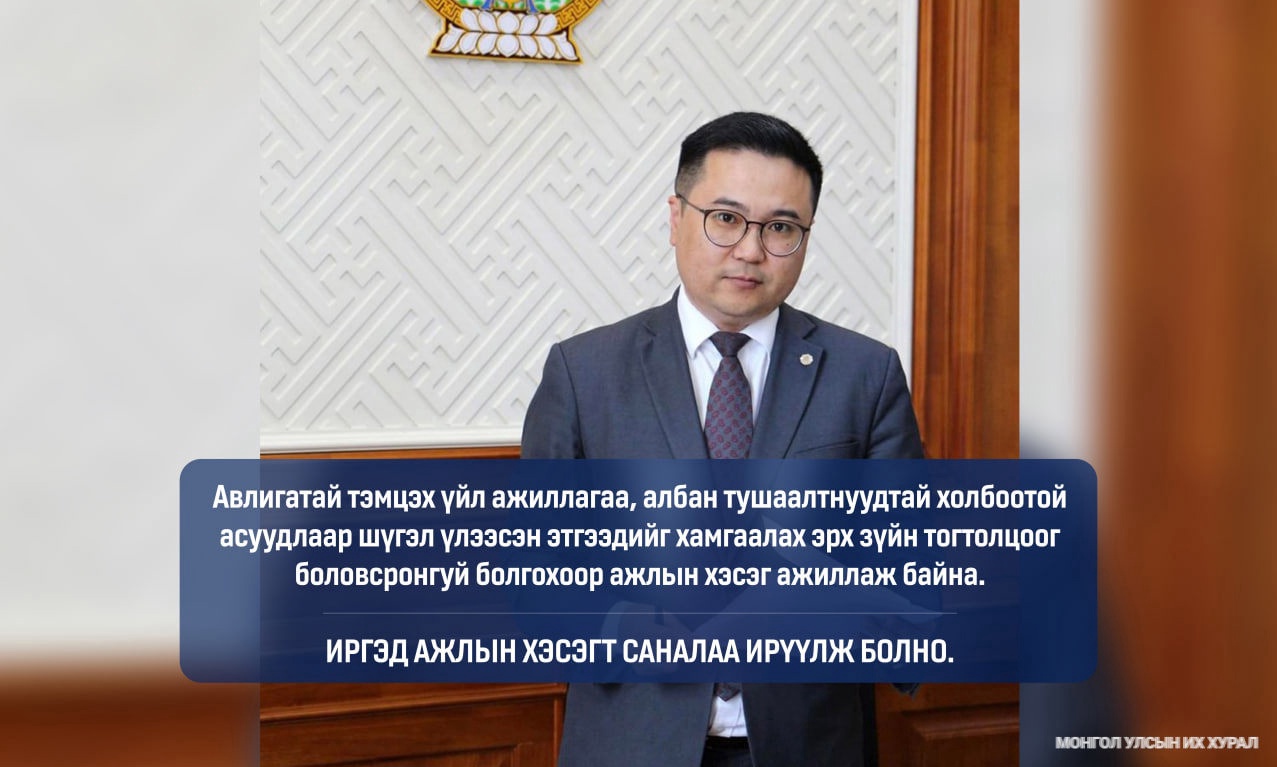A total of 54 working groups were established by the directive of the Chairman of the State Great Hural (Parliament) to assess Mongolia’s legal framework, provide recommendations, and, if necessary, draft legislation. MP P. Sainzorig, who heads the working groups on drafting whistleblower protection legislation and enhancing laws governing commercial and bankruptcy matters, shared updates on their progress.
- What is the current progress of the working group focused on commercial and bankruptcy laws?
Business conditions in Mongolia are currently challenging, with slow dispute resolution processes stalling business operations and cash flows, thereby undermining trust among business owners and limiting company growth. It’s essential to provide a system that resolves business disputes efficiently, minimizing costs, and preventing undue delays. Additionally, ensuring that court decisions are enforced and contractual obligations fulfilled is critical. The working group is examining the legal framework to address these issues.
For example, while the law mandates written contracts, many business partners finalize agreements electronically and transfer funds digitally. This can lead to disputes, as courts may dismiss cases lacking traditional written contracts, creating an obstacle to smooth business operations. We’re also exploring non-court solutions for resolving business disputes, such as arbitration and mediation.
Additionally, blocked funds resulting from unenforced court decisions are a pressing concern. We must align these with bankruptcy laws. Currently, the process allows judgments against insolvent companies, often leading to unenforceable decisions. Establishing mechanisms for redistributing risk, developing recovery plans, or restructuring failing companies under court oversight could address these issues. An unclear legal framework has led to “zombie companies” that continue to operate with tax and social insurance debt without dissolution. Therefore, we are working on a comprehensive update to the Bankruptcy Law, potentially renaming it the Insolvency Law, along with necessary reforms to the Civil Code, Commercial Law, and related legislation.
- How does the working group plan to improve whistleblower protection?
One of the most effective anti-corruption measures is transparency. Protecting those who provide information is essential. Whistleblower protections should extend beyond anti-corruption to address violations of children’s rights, environmental crimes, and consumer rights issues. Individuals who report these issues should not face retaliation from any state organization or official.
The working group is focused on developing protections to prevent such retaliation, while also considering an incentive system for whistleblowers who risk their livelihoods. Previously, similar protections existed under tax legislation, rewarding individuals who reported tax evasion or environmental violations. This time, we aim to strengthen legal protections specifically for those who report corruption and official misconduct. We welcome citizen feedback on these issues.

 Eng
Eng  Монгол
Монгол


